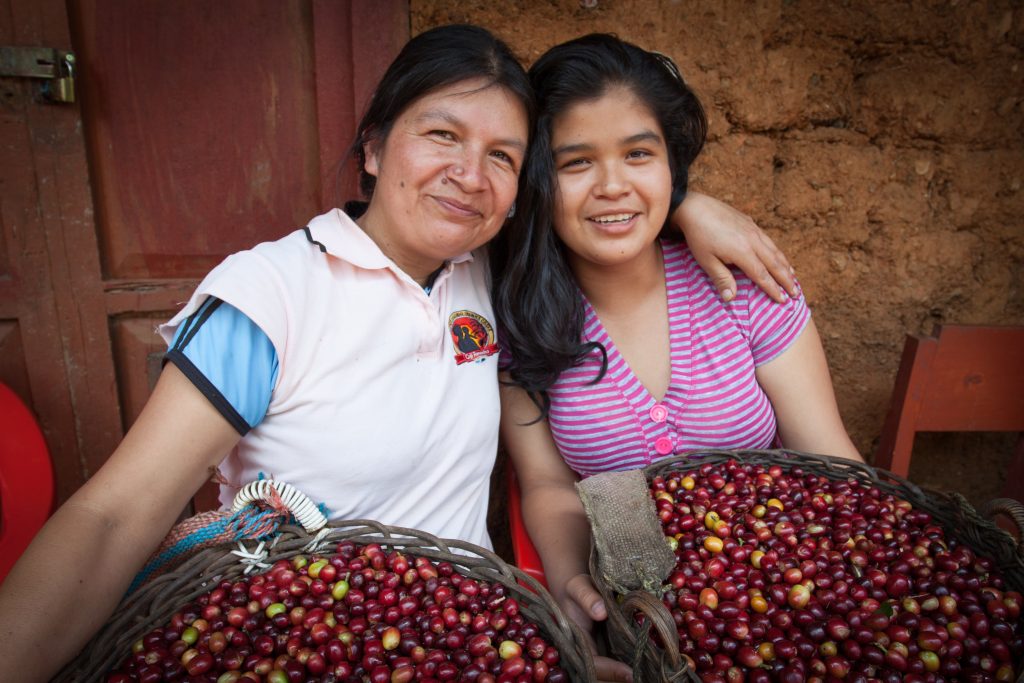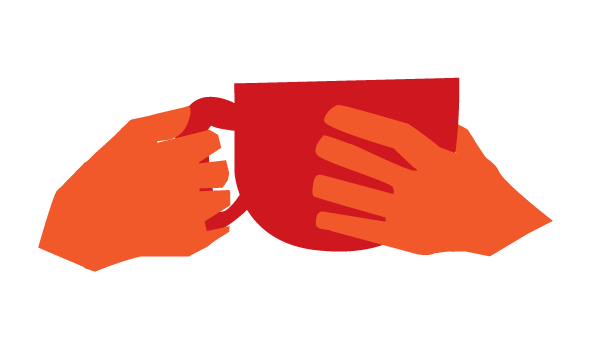Erlita’s Lot Coffee from Peru
Grown, harvested, sold, and shipped by women
Ari Weinzweig, CEO & Co-Founder of Zingerman’s
Back in 2004, Isabel Uriarte Latorre co-founded Café Femenino, an organization dedicated to empowering women on the front lines of the coffee industry. From the get-go, she built the business to support women in the work world financially, spiritually and socially. The project allows women to produce high-quality coffee and get paid commensurately—they’re not stuck bargaining with aggressive buying agents out on the marketplace. And, as per what I wrote above, to boost the energy of women who had generally been left out, ignored, or even abused, and help them reclaim the full lives to which they have always been entitled. The folks at Café Femenino share that:
“Women in remote and rural coffee communities face a host of challenges that keep them trapped in poverty. Many of these isolated women live in male-dominated societies and have very little financial control or decision-making power. 464 women farmers in northern Peru decided to change this dynamic by separating their coffee production from the men’s. In that moment, for the first time, this group of women created their own product and income… to support social justice and empowerment for women coffee producers worldwide.”

Coffee production came to Peru in the 1700s. After two centuries, the heirloom typica variety still comprises 60 percent of the country’s exports. There are more than 110,000 coffee growers in Peru, most of whom are indigenous to these landscapes and speak Spanish only as a second language. The average land-holding farmer lives on less than three hectares, hours from the comforts of electricity and running water. Erlita Baca Arce’s farm is near the Peruvian village of Nueva York, a small coffee community in the Amazonas region of northern Peru, east of the Andes Mountains, at 5700 to 6500 feet above sea level—an ideal altitude for high-quality Arabica coffee trees. Erlita has been part of the project since its inception and now serves as the treasurer of the coop, and as she explains:
“Café Femenino has given me many opportunities to improve the quality of my coffee and the quality of life for my family. I invest the premium I earn in improving our community, providing education for our daughters, and improving the food that we feed our families. Café Femenino has been wonderful in improving the self-esteem and empowerment of the women in our community.“
Erlita is not alone in her positive comments. Every article I’ve read about Café Femenino details outstanding results: increased local recognition of the work the women are doing, both in the fields and on the home front; a reduction in abuse (physical, emotional, and sexual); an increase in income; more men are participating in child care and housework; and upswing in school attendance among local girls. In addition, because the female coffee producers in the area now have the potential to get a better price for their coffee, many men are signing the deeds of their land over to their wives so their coffee will be eligible for Café Femenino designation.
While dignity, meaningful work, and good coffee are always in season, National Women’s History Month is a particularly good time to take notice of Erlita’s Lot. The history of the event goes back over a century to the years before WWI and the Spanish flu, to the end of February 1909, when “National Women’s Day” was sponsored by the Socialist Party of America. By March of 1911, International Women’s Day (IWD) was marked by over a million people demanding the right to vote for women, workplace safety, equitable pay, etc. Six years later, on March 8, 1917 in the Russian capital of Petrograd, women workers took to the streets for National Women’s Day, demonstrating en masse in an event that unexpectedly turned into the Russian Revolution. The Tsar abdicated a week later, on March 15. Leon Trotsky wrote, “March 8th was International Women’s Day, and meetings and actions were foreseen. But we did not imagine that this ‘Women’s Day’ would inaugurate the revolution.”
The Erlita’s Lot coffee is as great as the story behind it. Smooth, a bit of dark chocolate, maybe even like a piece of toasted Country Miche bread from the Bakehouse. The coffee has a surprisingly clean finish and modestly full mouthfeel. All the brew methods have been good, but I’m stuck on the smoothest flavor of the bunch, which I found to be Chemex (the syphon pot and the Clever brewing weren’t far behind). Sip some of this great new coffee and nibble on a Bakehouse oatmeal raisin cookie. Erlita’s Lot is available at the Coffee Company, Next Door at the Deli, and at the Roadhouse. Sit, and appreciate the morning as we move into spring. And because I seem to have a proclivity of late for Peruvian poets, here’s a short one that seems right for the moment from surrealist writer Blanca Varela:
it’s seven in the morning
it’s the perfect time to start
dreaming
the coffee becomes eternal
and the sun eternal
if you don’t move
Excerpt from Ari’s weekly Top 5 E-Newsletter. To stay in-the-know about things that Ari is excited about in the Zingerman’s family, sign up here!


